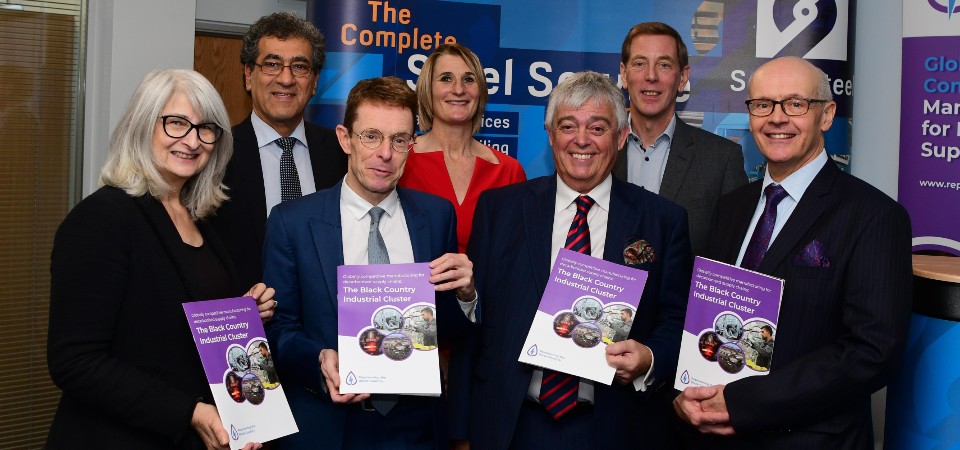The Black Country Decarbonisation Programme was launched earlier this month at the Servosteel plant in Dudley and will initially develop four pilot zero carbon industrial hubs.
Within the next 10 years, it will aim to reduce the region’s industrial carbon emissions by around 1.3Mt of CO2 while keeping energy costs competitive and attracting high quality manufacturing jobs to the area.
It will be delivered via Repowering the Black Country – a programme that supports Black Country businesses with global clean growth opportunities and a net zero industrial future.
Loughborough’s Professor Jan Godsell, Dean of the School of Business and Economics will lead an initiative which will focus on new business model designs to support the region’s circular economy.
She said: “If the UK is to meet its net Zero 2050 target, in addition to the adoption of low carbon energy sources, new business models that decouple consumption from production are key.
“This enables products to be kept in their highest possible value state as they are repaired, refurbished, remanufactured, or redistributed and supports the principles of a more Circular Economy.
“Loughborough University and WMG, University of Warwick are thrilled to be working together to develop the business model designs that will support the Net Zero hubs to achieve their ambition.”

Front row l - r: Sarah Middleton Chief Executive Black Country LEP, Andy Street Mayor of the West Midlands, Tom Westley Chair of the Black Country LEP Board, Mark Anderson, Director Servosteel.
Andy Street, the Mayor of the West Midlands, said: “This is an important programme for the West Midlands and the UK as a whole as we look to tackle the climate emergency.
“I’ve just returned from COP26 where I’ve been talking about the opportunity for green industries to transform industrial heartlands like the West Midlands – and this programme is a case in point.
“I’m delighted to see the Black Country at the forefront of our efforts to respond to the global climate crisis, and repowering the Black Country shows that we can create jobs and opportunities through decarbonisation.”
Repowering the Black Country is one of six industrial cluster decarbonisation projects funded by BEIS and UKRI. The Black Country Industrial Cluster consists of more than 3000 energy-intense manufacturing businesses. Our project is supporting the national industrial decarbonisation strategy by developing approaches which work in the Black Country and can then be applied more widely.
The project is about providing cost-efficient energy infrastructure across the Black Country; helping companies benefit from new supply chain opportunities in the circular economy; and supporting resource efficiency initiatives in manufacturing operations.
The UK government has committed to the country having net zero carbon emissions by 2050. Decarbonisation of industry is key to achieving this goal, and is a top priority for the current government, who have committed over £20bn to industrial decarbonisation investments over the next 10 years. This may include the phasing out of gas as a fuel, development of a hydrogen infrastructure, and fundamental changes in the way electricity is charged. They are also considering carbon labelling of manufactured products and extending emissions trading schemes to smaller businesses.
Led by the Black Country LEP, the Repowering the Black Country partnership includes local businesses Kew Technology, Pro Enviro and CR Plus, supported by specialists from the University of Birmingham and WMG, University of Warwick, as well as companies specialising in urban agriculture (District Eating) and energy investment (M3MAS).
Find out more about Repowering the Black Country at: https://www.blackcountrylep.co.uk/our-strategy/place/repowering-the-black-country/
ENDS








